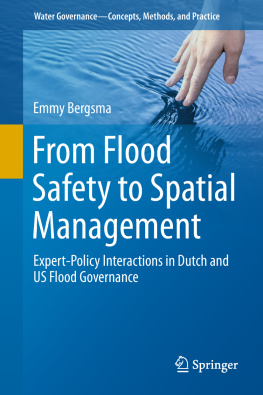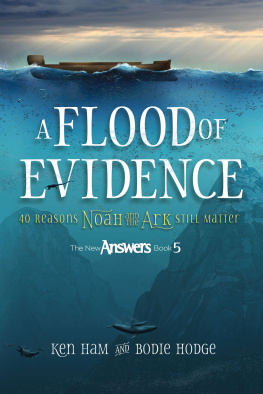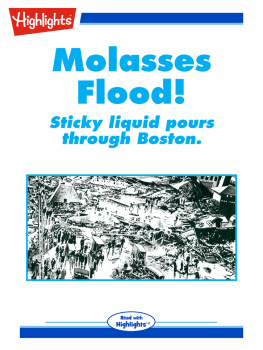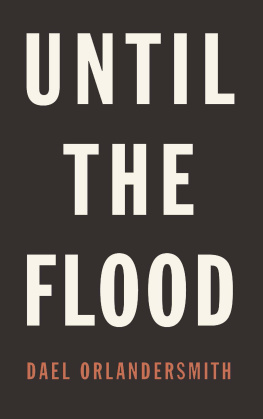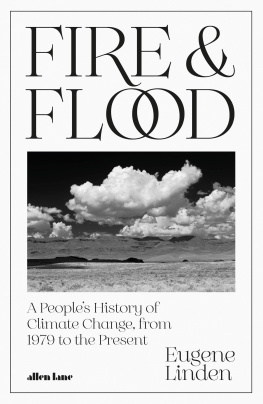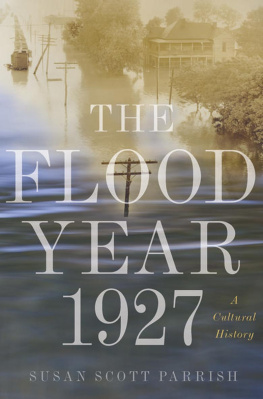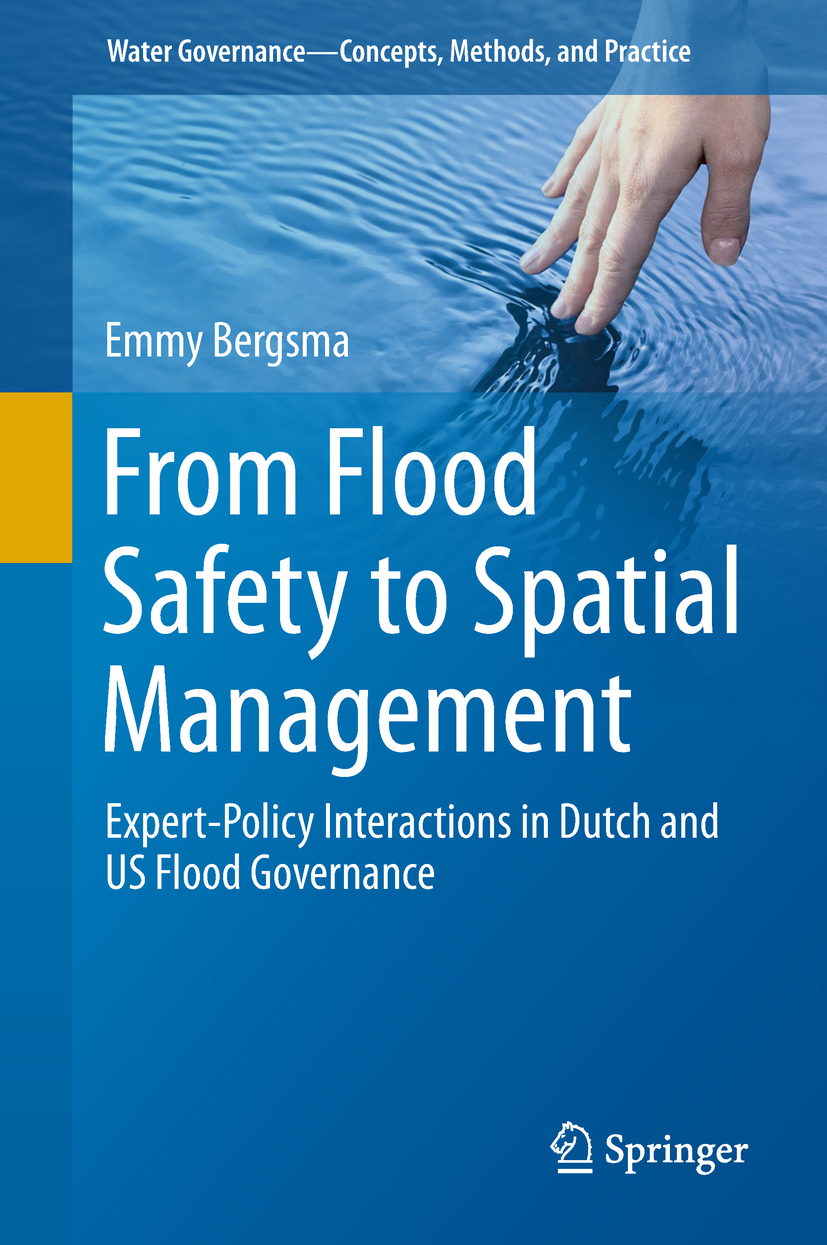Water Governance - Concepts, Methods, and Practice
Series Editors
Claudia Pahl-Wostl
University of Osnabrck, Osnabrck, Germany
Joyeeta Gupta
Faculty of Earth and Life Sciences, University of Amsterdam, Amsterdam, The Netherlands
This book series aims at providing a platform for developing an integrated perspective on major advances in the field of water governance. Contributions will build bridges across established fields of expertise, across disciplinary perspectives, across levels from global to local and across geographical regions. Topics to be covered include conceptual and methodological advances capturing the complexity of water governance systems, institutional settings, actor constellations, diagnostic approaches, and comparative studies of governance systems. The book series encompasses monographs, textbooks and edited, coordinated volumes addressing one theme from different perspectives. The book series will address mainly a wider scientific audience, but will also provide valuable knowledge to interested practitioners. The sustainable management of fresh water resources and the ecosystem services that they provide is one of the key challenges of the 21st century. Many water related problems can be attributed to governance failure at multiple levels of governance rather than to the resource base itself. At the same time our knowledge on water governance systems and conditions for success of water governance reform is still quite limited. The notion of water governance aims at capturing the complexity of processes that determine the delivery of water related services for societal needs and that provide the context within which water management operates. Water governance is a fast growing field of scholarly expertise which has largely developed over the past decade. The number of publications in peer reviewed journals has increased from less than 20 in the year 2000 to nearly 400 in the year 2013. The increasing popularity of the term in science and policy has not lead to conceptual convergence but rather to an increasing vagueness and competing interpretations of how the concept should be understood, studied, and analyzed; which disciplines are involved; and what methodological approaches are most suitable for the study and analysis of water governance. The time seems to be ripe for comprehensive synthesis and integration.
More information about this series at http://www.springer.com/series/13400
Emmy Bergsma
From Flood Safety to Spatial Management Expert-Policy Interactions in Dutch and US Flood Governance
Emmy Bergsma
University of Amsterdam, Amsterdam, The Netherlands
ISSN 2365-4961 e-ISSN 2365-497X
Water Governance - Concepts, Methods, and Practice
ISBN 978-3-319-96715-8 e-ISBN 978-3-319-96716-5
https://doi.org/10.1007/978-3-319-96716-5
Library of Congress Control Number: 2018949335
Springer International Publishing AG, part of Springer Nature 2019
This work is subject to copyright. All rights are reserved by the Publisher, whether the whole or part of the material is concerned, specifically the rights of translation, reprinting, reuse of illustrations, recitation, broadcasting, reproduction on microfilms or in any other physical way, and transmission or information storage and retrieval, electronic adaptation, computer software, or by similar or dissimilar methodology now known or hereafter developed.
The use of general descriptive names, registered names, trademarks, service marks, etc. in this publication does not imply, even in the absence of a specific statement, that such names are exempt from the relevant protective laws and regulations and therefore free for general use.
The publisher, the authors and the editors are safe to assume that the advice and information in this book are believed to be true and accurate at the date of publication. Neither the publisher nor the authors or the editors give a warranty, express or implied, with respect to the material contained herein or for any errors or omissions that may have been made. The publisher remains neutral with regard to jurisdictional claims in published maps and institutional affiliations.
This Springer imprint is published by the registered company Springer International Publishing AG part of Springer Nature
The registered company address is: Gewerbestrasse 11, 6330 Cham, Switzerland
Acknowledgements
The research for this manuscript was carried out at the Department of Political Science, Faculty of Social and Behavioural Sciences, the Amsterdam Institute for Social Science Research (AISSR), University of Amsterdam. It was made possible by the Stichting Agnosticisme and Meritocratie .
Abbreviations
FEMA
Federal Emergency Management Agency
FIRM
Flood Insurance Rate Map
GAO
US Government Accountability Office
NFIP
National Flood Insurance Program
US
United States
Contents
Springer International Publishing AG, part of Springer Nature 2019
Emmy Bergsma From Flood Safety to Spatial Management Water Governance - Concepts, Methods, and Practice https://doi.org/10.1007/978-3-319-96716-5_1
1. A Framework for Analyzing Distributive Decision-Making in Flood Governance
Emmy Bergsma
(1)
University of Amsterdam, Amsterdam, The Netherlands
Keywords
Flood risk management Spatial planning Experts Distributive choices Institutional change Framing
1.1 Problem: Who Pays for Floods?
In the last decades, the costs of floods have risen. In 2017 alone, more than 1200 people were killed during monsoon floods in South Asia, hurricanes Harvey and Irma brought 200300 billion US dollar (USD) damage to the Gulf Coast and the Caribbean, and large parts of central Europe were hit by massive riverine flooding. 2017 is no exception. For years, floods have ranked on top of the United Nations Office for Disaster Risk Reductions list of most disastrous natural hazards (UNISDR ). A key question that emerges from these rising (future) costs of flooding is who will pay for these costs and the protection measures to avert them? This question forms the starting point of this book.
1.1.1 Distributive Choices in Environmental Governance
This study is the result of a personal quest into an issue that has bothered me since the start of my studies in human geography: Who pays for natural distress? Human geography analyses the relationship between humans and their (social and natural) environment; my specialization, environmental geography, focuses on our relationship with nature specifically. This specialization looks at how we make use of our natural environment, and how we create the conditions that allow us to access natural areas, utilize their resources, and maximize their benefits. It also looks at the implications of these human interferences with nature. By shaping nature to our needs, we have exposed ourselves to its harms. We have not only contributed to environmental problems such as earthquakes, biodiversity loss, droughts, and floods but these problems now also present a threat to the environment we have become so dependent on (Goudie ). In the management of environmental problems, the short-term and often individual benefits gained by our use of nature have to be considered against the long-term and often collective risks created by this use. How to make such trade-offs is, in my view, one of the most pressing and relevant questions in environmental governance.

